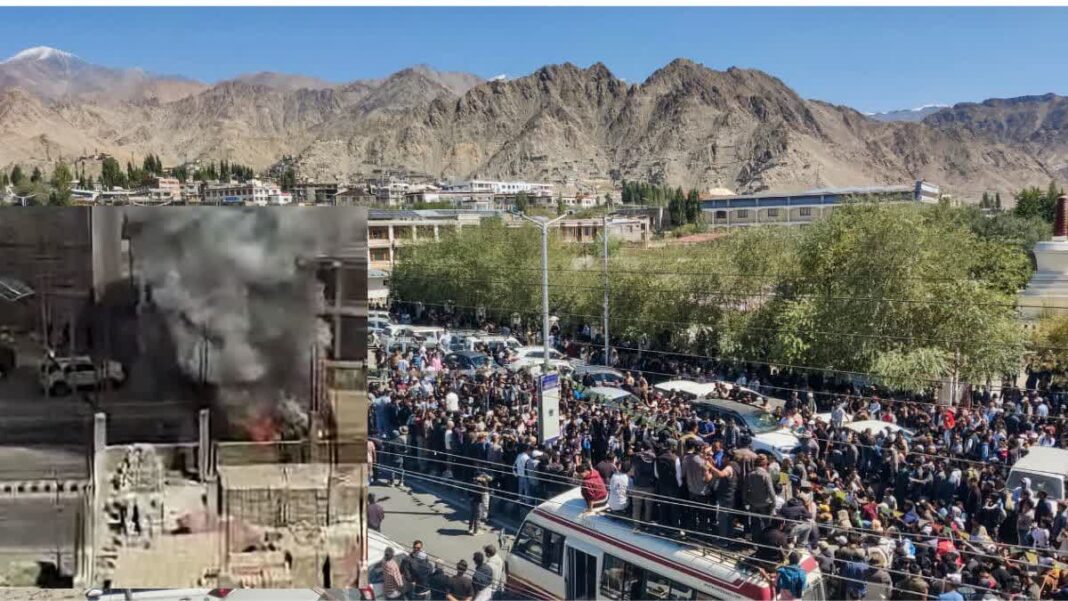- At least four people were killed amid Ladakh statehood protests in Leh; BJP office and a car were set ablaze; police used tear gas and baton charges; prohibitory orders imposed.
- Over 70 people, including security personnel, were injured; dispersal orders issued; activist Sonam Wangchuk ended a 15-day fast and urged restraint; talks with the Centre expected.
- Locals seek an elected legislature, full statehood, and Sixth Schedule inclusion to safeguard land, jobs, language, and culture.
The Big Picture
Violence erupted in Leh on Wednesday, Sept. 24, 2025, as Ladakh statehood protests turned into arson and police battles, killing at least four people and several more hurt, India Today reported. Protesters torched the BJP office complex in the region and set a car ablaze; police brought order with tear gas and baton charges. Prohibitory orders were imposed in Leh in appeal for restraint.
What’s New
More than 70 people were injured, including security personnel, as the clashes intensified around key administrative areas. Orders to disperse crowds under public order statutes were initiated by the government and threatened action against acts of vandalism. Activist Sonam Wangchuk ended his 15-day fast and urged protesters to desist from further escalation, some Indian media reported. Local authorities and the central government are scheduled to sit down to negotiate in days to come.
Who Organized the Protest?
Reports differ on who called the march. Several youth collectives aligned with the “Gen-Z” campaign say they mobilized supporters through local networks and social media. Police and some local leaders contend that cadres from established political parties joined and steered parts of the crowd.
- Youth groups claim the turnout was a Gen-Z-led action.
- Officials suggest participation and influence by party workers.
What They’re Saying
Context
In August 2019, the Centre took away Jammu and Kashmir’s special status and reformed the state. This made Ladakh its own Union Territory. Local communities have since advocated for an elected legislature, full statehood, and Sixth Schedule inclusion to protect land, employment, language, and culture.
What’s Next
Inhibitory orders mean restrictions will be imposed by the administration as law and order officials investigate incidents of arson and assault. Civil society and religious groups have urged peaceful protest. Anything official on the movement towards statehood or Sixth Schedule status would require legislative and constitutional steps by Parliament and the Centre. Stakeholders are watching whether upcoming negotiations result in a roadmap for representation and protection.
The Bottom Line
The Ladakh statehood movement has come to its most fiery level since 2019. Strengthening the streets will be the short-term challenge; redressing old demands for representation and protection will be the larger one.
A global media for the latest news, entertainment, music fashion, and more.














